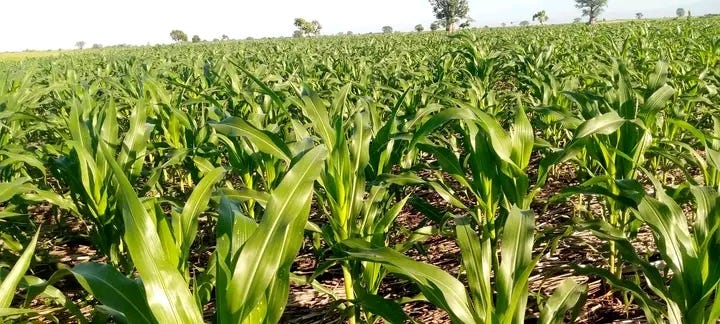Farmers Await Harvest as Rain Relief Soaks Nsanje and Chikwawa
The rains drenched the two areas of the Shire Valley, sparking cautious optimism that the dry spell may finally be over.
NSANJE/CHIKWAWA, Malawi— Farmers in Malawi's drought-stricken Nsanje and Chikwawa districts are anxiously awaiting harvest time after recent heavy rains provided a glimmer of hope for crops that were withering just weeks ago, writes Moses Thole.
The rains drenched the two areas of the Shire Valley, sparking cautious optimism that the dry spell may finally be over.
But agricultural officials warn it's too soon to declare an end to the drought.
"We need more time to accurately assess the situation," said Abraham Danton Banda, communication officer for the Shire Valley Agricultural Development Division (SVADD).
"I encourage farmers to stay updated on daily weather forecasts and seek guidance from extension workers."
Just last month, field assessments by AfricaBrief revealed a dire situation, with many maize fields suffering from lack of rainfall.
Some farmers had already abandoned their maize crops and opted to plant sesame in hopes of salvaging some yield.
But the recent downpours have breathed new life into certain drought-resistant crops like millet and sorghum. If the rains persist over the next two weeks, farmers could see bumper harvests for these hardy grains.
"The rains came at just the right time for my millet crop," said Gregory Mwalabu, a farmer in Nsanje district's Mlolo region.
"With more rainfall, we may finally have reason to smile this season."
Still, the specter of drought hovers. Maize yields are expected to be severely impacted after the extended dry period stunted growth.
"The rains were overdue for many maize farmers," acknowledged Banda.
"But we remain hopeful that some production can be salvaged through irrigation efforts."
As the nation's agricultural backbone, the fates of Malawian farmers are inextricably tied to the timing and distribution of annual rainfall.
Officials continue urging farmers to diversify their crops while supporting drought mitigation and irrigation initiatives.
For now, farmers like Mwalabu await the coming harvest with cautious hope, their livelihoods still hanging in the balance of the region's fickle rain patterns.



